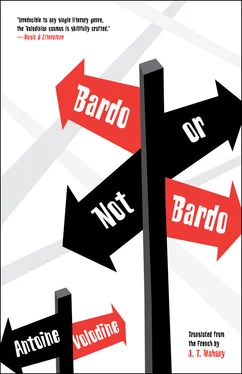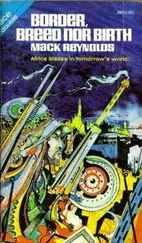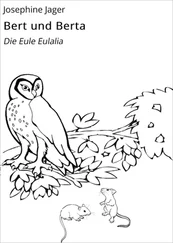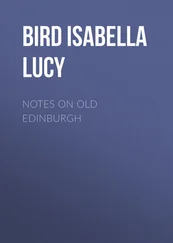A truck approaches and roars in front of the bar. The windows clatter. Once again, silence sets in.
Behind the counter, the bartender wipes saucers, glasses, cups, teaspoons, puts them away.
Festoons of multicolored garland can be seen outside, suspended there like on a sixties pizzeria façade. Inside the room, the lights are mundane and bright. An hour earlier, there was ambient music, indistinguishable rock songs like those heard in any public place for the last two centuries, but the bartender had turned the volume down when he began his shift and looked for a more exotic station. He came across a Korean music broadcast. It seems to be a cassette alternating between pansori excerpts and traditional dances playing on continuous loop. Sometimes the music is substituted with a Korean commentator who chatters at length in her language, with seductive tones that make Yasar the bartender daydream.
All is calm. The silence is also intruded on by noises originating in the neighboring lamaic temple. Monotonous chants, rhythms lacking any diversity, a prior’s solemn voice, bells: on the other side of the partition, a ceremony has begun.
“Could I get another caffeine, Yasar?”
Freek is sitting on a stool at the bar. He is the sole client. It is apparent at a glance that he is lacking something human. For an Untermensch, he is very handsome, but his body emanates an impression of anomaly. An indefinable touch of abnormality pushes him back into the outskirts where the human subconscious hates to venture. He knows this, he tries hard not to let it bother him, but he suffers from it. It doesn’t make his relations with others any easier. When he speaks, his voice is often filled with emotion, like with all hypersensitive individuals. It is emotional and slightly weird, as well.
The bartender halts his wiping. He thumps the percolator’s coffee filter on a drawer, he screws it back on, clutching it tightly, he slides the drawer back without closing it, he presses the hot water button. His movements are calm. His entire person inspires trust.
“This is your fourth cup, Freek,” he says. “It’s going to make you sick.”
“Don’t need to sleep,” Freek explains. “Have to go back to the zoo. The animals are waiting for me. Have to talk to them. They’re anxious, they’re not sleeping. They’re afraid of dying.”
“Ah,” says Yasar.
“I have to reassure them,” Freek continues after a silence. “They’ve smelled death’s odor. They’re afraid of dying like the clown, like the yak.”
Yasar has turned back around. Now, he is placing a bowl of piping hot caffeine in front of Freek. Freek thanks him.
“What clown?” Yasar asks. “A clown died at the zoo? Tell me about it, Freek.”
“No, the yak is the one who’s dying. I need to go to the zoo because of him. The yak is old and sick. The veterinarian came, he said he still had a day or two. This is the yak’s final night. It’s happening, in a zoo. The bars protect, but they don’t stop death.”
Freek pauses. Facing Yasar, who is friendly with him, he doesn’t have too many problems expressing himself. It’s even the opposite: he seems unable to keep himself from speaking. He dunks his lips in the too-hot caffeine, then revives his talking points.
“The animals are sad behind the gates,” he says. “And sadness is very tiring. They’re in a safe place, they’re protected, but they grow old just as fast as if they were free, exposed to danger. The yak’s gotten old. He’s been feeling very unwell. The nearby animals are worried, they can smell death’s odor. The veterinarian arrives. He says that the yak only has a day or two left. He says this in front of the yak as if the yak were deaf. He takes out a syringe, he injects useless vaccines against old age and death. Then he leaves. It’s night. The smells spread. In their cages, the animals breathe in the smells. It scares them. I have to go and console them. None of the animals can sleep in the zoo at night. They need someone by their side. My words reassure them. The yak needs someone by his side too, to talk to him and help him get through the night. I need to talk to the yak if he’s struggling against death, or even if he’s already stopped breathing.”
In the neighboring room, a bell rings, a very solemn voice pronounces syllables incomprehensible to those who have not mastered Liturgical Tibetan. Then it stops and, coming from a transistor located behind the bartender, there is a Korean melody. It’s a tune sung when worn out, when fate has been unfavorable and it’s hard to find the necessary energy to go on. A woman adjusts her despair with the violence specific to pansori singers, a violence devoid of any whining, then the chorus picks back up and gives it a more lively coloration, as if the intervention of the collectivity had diverted the sorrow toward new reasons to fight together and endure.
“Excuse me, Freek,” the bartender says. “I’ll get back to this in a bit. You said something about a clown.”
“Yes,” says Freek. “Furthermore, that’s what’s got the animals frightened horribly. After closing time, the clown was found in the raptor exhibit. The clown’s cadaver. That’s keeping them from sleeping too. The clown’s remains in the cage. Smells are stronger in the dark. The animals breathe them in. All the animals in the zoo. They grow restless, they’re afraid. They turn in circles or shrink into corners. They think about the yak, about death, about old age. They think about the clown. I have to go back to the zoo to calm them down. So they’ll be taken by sleep and forget.”
Yasar leans on his elbows in front of Freek. He’s just thrown out the rag he was wiping dishes with. He has the hard face of a man who has suffered, cheeks scarred from smallpox, piercing eyes. The beginning of a tattoo can be seen at the base of his neck, perhaps a souvenir from some journey or passion, perhaps a souvenir from prison. He’s spent a large part of his life within four walls, in fact.
“I still don’t understand this clown thing, Freek,” he says. “I’m trying to picture your words in my head, but some of the details escape me.”
“Oh,” says Freek.
“Yes,” says Yasar. “It’s all clear for you, because you’re going in and out of the zoo all the time, like you were. . as if you belonged to a world that. .” (He sighs.) “But I’m having trouble putting the clown in the scene. I can’t figure out what he’s doing in the cages in the middle of the night. You’ll have to explain it to me.”
“The clown worked in a circus. The Schmühl. Do you know about it?”
“No.”
“He killed himself,” Freek says. “He was brought to the zoo an hour after the gates were closed. After the visitors, children, left. They do that. A lamaist mutual aid group. You have to sign up. The clown was a member, I guess. It’s a special service. They get permission from the city council. There are rules. They follow them. They only go into the cages if the zoo director gives them the green light. They come with the body. There are three of them. Dressed like gravediggers with nothing to lose. Poor guys like us, you know?”
“Not really.”
“Like us. Wearing civvies. They go into the aviary with the body. Sky burials, they call it. Sky burials.”
“They give the body to the birds to eat?” Yasar asks.
“Oh, not all of it,” Freek clarifies. “Otherwise they’d have to wait for days around vultures, eagles, condors. They don’t stay long. The zoo’s watchmen say that it’s mainly symbolic. Some strips, some small slices. A pittance. The raptors are afraid, they don’t approach. They won’t eat any meat under any circumstance. Afterward, the guys walk out with the body. They load it on a little cart and cover it with an oilskin canvas. No one is on the paths. Zoo administration doesn’t attend these things. The zoo is empty. It’s already dark. They leave with the body to go incinerate it. They leave, but the dead clown’s scent continues to waft from cage to cage. It’s powerful in the large aviary, but not just there. It hangs around the zoo for hours. It gives everyone the heebie-jeebies. If no one comes to speak to them, the animals will tremble with fear all night. .”
Читать дальше












